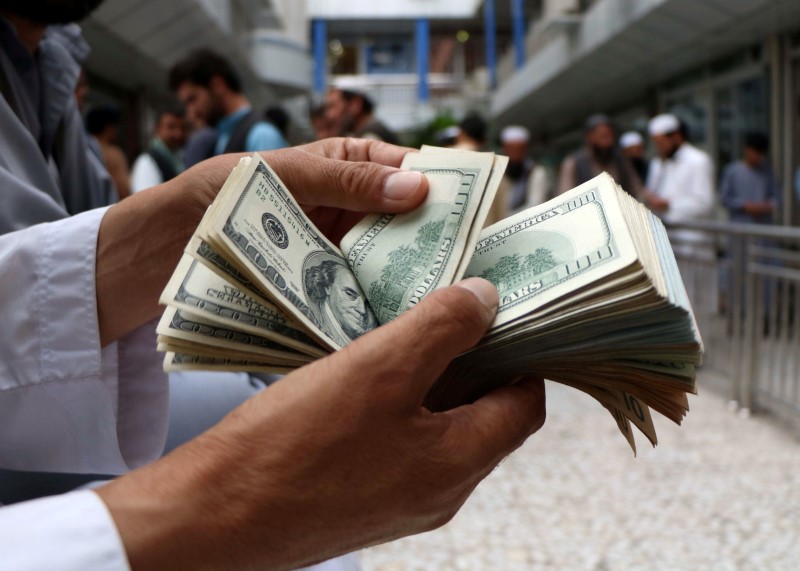Investing.com – The U.S. dollar fell in early European trading on Friday after weak data fueled fears of a sharp slowdown in the world’s largest economy, potentially prompting the Federal Reserve to aggressively ease monetary policy.
At 04:00 ET (09:00 GMT), the Dollar Index, which tracks the greenback against a basket of six other currencies, was trading 0.2% lower at 103.997, continuing to decline after falling 1.7% in July , the weakest monthly performance this year. year.
Dollar weaker due to recession fears
Data overnight showed the US shrank at the fastest pace in eight months in July, while the employment gauge fell sharply, raising the likelihood of a US recession.
It also signals that risks for the main report expected later in the session are on the downside.
Economists expect the U.S. economy to have created 177,000 jobs in July, up from 206,000 the previous month.
The , which has been moving higher over the past three months, is expected to remain stable at 4.1%.
“We are bearish on the dollar today because a) evidence from the employment components of the ISM and NFIB surveys suggests that risks are shifting towards weaker wage pressures, and b) once the stock market turmoil and demand for safe ports decline, macroeconomic factors drag the USD down,” ING analysts said in a note.
“The July jobs report will tell the Federal Reserve how much risk is involved in the employment side of their mandate.”
The pound sterling is falling due to the BOE cut
In Europe, yields fell 0.1% to 1.2734 after falling to a low of 1.2708 for the first time since July 3 in the wake of the Bank of England to cut interest rates on Thursday.
BoE Governor Andrew Bailey led a 5-4 decision to cut rates by a quarter of a percentage point to 5%, saying the central bank would move cautiously going forward, implying a steady pace of cuts.
rose 0.3% to 1.0820, bouncing after hitting a three-week low of 1.0777.
Data released on Thursday showed euro zone manufacturing activity remained in contraction territory in July, suggesting interest rates will need to be cut again this year to boost the slowing economy.
“The eurozone calendar is empty today and we are entering a seasonally quiet period, not only for the figures, but also for the ECB speakers. Given the poor activity indicators in the eurozone recently, this is probably a good thing for the euro,” ING said.
The yen continues to rise
In Asia, yields fell 0.3% to 148.84, with the yen continuing to rise after the 15 basis point rate hike and marking more potential rate hikes in 2024, citing some improving trends in the Japanese economy.
fell 0.5% to 7.2071, with the yuan falling as weak PMI data fueled worries about an economic slowdown.


